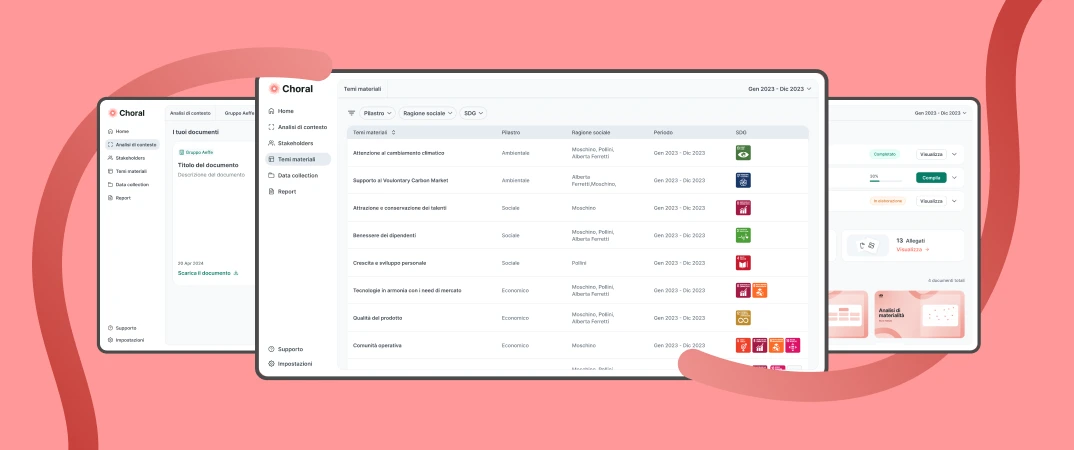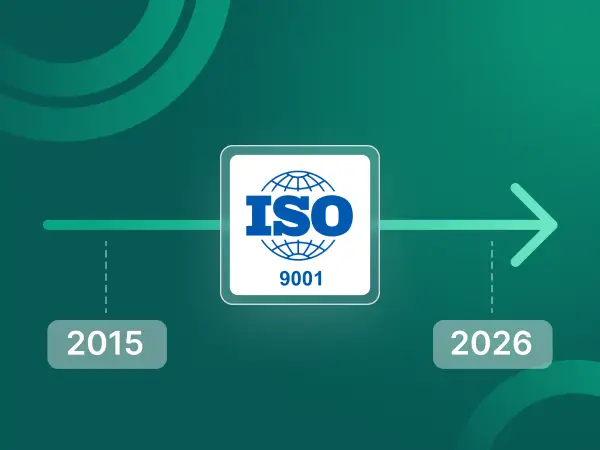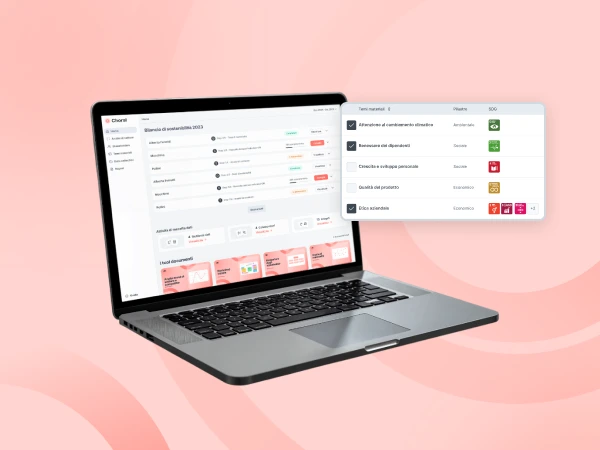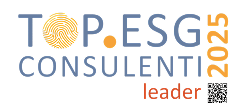In the current context, the sustainability It is no longer a accessory element, but a crucial strategic factor for business success. Companies are called upon to reconcile with the expectations of a multiplicity of stakeholders: not only shareholders, but also employees, customers, local communities, institutions and the environment itself.
To face this challenge in a way credible and structured, organizations need to reliable tools that allow you to measure, monitor and communicate your performances ESG.
Read the article and find out who are the subjects who most often require the compilation of ESG forms and questionnaires and which are the hardships in providing this data accurately. Also find out how to optimize the process management in order to maximize the chances of obtaining a certification, a rating or joining an initiative.
Let's get started!
Who are the subjects who require the most data in the ESG field?
In the current landscape, more and more organizations and institutions require companies to provide structured, complete and verifiable data in ESG field.
These requests may come from very different actors, each with specific objectives but united by the need to Evaluate the sustainability of companies in such a way transparent and trustworthy.
Here are the main parties that may request a compilation of ESG data:
1. Banks and financial institutions
Banks are integrating ESG criteria in the processes of granting credit and risk assessment. Increasingly, before granting a loan or renegotiating contractual conditions, they ask the company to prove its exposure (or resilience) a environmental, social and governance risks. Una solid ESG reporting may mean easier access to credit and more favorable conditions.
2. Customers and business partners
Especially in complex supply chains, large clients, both public and private, demand from suppliers and subcontractors guarantees on the sustainability of activities. This is especially true in the manufacturing, food, fashion and logistics sectors. In many cases, the failure to send ESG data structured may mean exclusion from tenders, collaborations or framework contracts.
3. Calls and public incentives
Many national and international calls, in particular those related to European funds (such as the PNRR), require the compilation of ESG indicators. Sometimes sustainability criteria are used to determine the eligibility of the application, other times as a rewarding element. In either case, the availability of up-to-date ESG data can Make a difference between winning or losing an opportunity.
4. Certification bodies and rating systems
Who wants to get sustainability certifications (such as ISO 14001, SA8000, B Corp, etc.) or adhere to systems of ESG rating (CDP or Ecovadis) must go through a preliminary phase of collecting and compiling structured data. These bodies use checklists, audits, and questionnaires to verify compliance with required requirements, often on an annual basis.
5. Institutional investors and ESG funds
More and more investment funds are orienting their choices based on ESG performance of companies. To be considered, businesses must provide data transparent and comparable that make it possible to evaluate its environmental, social and governance impacts. This applies to both listed companies and SMEs, especially if they are looking for capital or M&A transactions.
6. Auditors and external advisors
During due diligence activities, risk assessments or guided sustainability processes, independent auditors and consulting firms may also request direct access to ESG data. The availability of a structured and updated collection system greatly simplifies this step, increasing efficiency and reducing the risk of errors.
7. Public authorities and regulators
With the entry into force of regulations such as Corporate Sustainability Reporting Directive (CSRD), companies are called upon to publicly report their ESG performance. Supervisory authorities can then request detailed and comparable data, according to standardized formats, to verify regulatory compliance and prevent phenomena of Greenwashing.
Why managing ESG data isn't an easy job
Providing accurate, consistent and verifiable information is the first step in obtaining a solid and credible ESG assessment.
Compile documents related to ESG issues in a manner superficial or approximate it can in fact compromise the quality of an assessment, negatively affecting the score of a rating assigned to the company or compromising the possibility of obtaining certification. This could also undermine reputation same as the company with stakeholders, investors and customers.
But if from the outside it may seem like a simple reporting exercise, in practice compiling documents in the ESG field is a Work that is far from trivial.
The problem does not lie only in the amount of data requested or in the need to provide timely and verifiable answers.
The real complexity comes from fragmentation of the process: each certification body or body uses different documentation, with its own formats, metrics and criteria. This means that every time a company wants to obtain a certification in the field of sustainability, it is Start essentially from scratch, even when the basic information is similar.
This heterogeneity has a cost. In many cases, companies end up spending weeks collecting and verifying data that is already available, with the real risk of incurring errors, inconsistencies or involuntary omissions.
This inconsistency may raise doubts about credibility of the company, slow down stakeholder decision-making processes and, in some cases, compromise access to funding or collaboration opportunities.
Understanding these difficulties is the first step to deal with them in a structured way.
How to effectively provide ESG data
Provide ESG data in effective and correct way it is not an activity to be tackled lightly: it requires method, rigor and specific skills.
To get the most value out of this process, it's crucial to follow some good practices. Let's see what they are.
1. Provide accurate and complete data
The information provided must be accurate, verifiable and up to date. Avoiding gaps or generic answers is essential to demonstrate transparency and robustness. Every reported data must be supported by documentary evidence and a structured collection of internal sources.
2. Involve specialist skills
The subjects who request this data cover different areas and require data on often very different topics, from CO2 emissions to gender equality, from governance to the supply chain. It is important to involve professional figures who are experts in their respective fields. Depending on the complexity, it may also be useful to rely on external consultants or partners specialized in sustainability.
3. Ensure consistency and comparability over time
One of the objectives in providing ESG data is also to monitor the evolution of business performance. For this reason, it is important to ensure the continuity and consistency of the data provided from one year to the next, adopting standardized collection methods and uniform criteria.

Choral: Up2You's platform for the automatic management of your ESG data
After seeing how much it can be complex and expensive provide accurate ESG data, it's clear how much companies need structured and intelligent tools to effectively manage their sustainability data.
It is precisely from this need that Choral, Up2You's proprietary platform, has been implemented to be able to simplify and automate ESG data management.
With Choral, every organization can create a centralized database to collect, organize and keep up to date all information related to sustainability. In this way, much less time is wasted, errors are reduced, consistency is maintained over time and a greater ability to respond quickly and accurately to the requests of different stakeholders.
Automatic filling out of ESG questionnaires and forms
Thanks to the data collected within the platform, with Choral it will be possible fill in automatically the forms to be able to obtain a certification, a rating, participate in an initiative or respond to requests for information on the part of stakeholders.
With Choral you can:
- upload the ESG questionnaire received from certifying bodies, customers, banks, suppliers or investors directly on the platform;
- take advantage of Choral's artificial intelligence which, together with the support of a expert advisor, fill out the questionnaire using the information already on the platform relating to your company;
- download the completed document with all the answers verified by one of Up2You's consultants;
- easily complete your ESG questionnaire, saving time and reducing the risk of errors or inconsistencies.
A process that previously could last days, or even weeks, is like this simplified and accelerated in a few hours.
Preliminary analysis for ESG certifications and ratings
In the event that the company is at one Preliminary stage and would like to understand the own positioning or level compared to the possibility of obtaining certifications or ratings, it is also possible to use the platform to obtain apreliminary ESG analysis.
Let's see what are the steps you can do with Choral:
- request a preliminary analysis directly from the platform, to evaluate the possibilities of obtaining a certification such as B Corp, a rating such as Ecovadis or joining an initiative such as SBTi;
- receive a personalized report which highlights strengths, critical issues and room for improvement in relation to specific requirements;
- use the report to develop a targeted strategy, focused on what it really takes to achieve certification, rating or to join the initiative in question.
Thanks to this function, companies can move more aware and strategic, avoiding surprises during the audit and maximizing the chances of success.






























